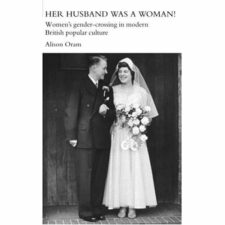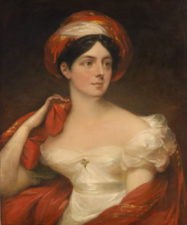My mother had eight of us. Four boys came first, then four girls. I came second last. Because she had boys before girls, my mother trained the boys to cook a meal, wash up, and do other work around the house. They were still young when they were almost running the place: she supervised the washing and, without urging, they hung it out to dry, brought it in and ironed each garment as she would have it ironed, without a crease. They cooked rice puddings and pineapple dumplings and knocked the heads off the chooks on Saturday night for Sunday dinner. When the girls came, life was not so tough. As we grew up, whoever washed up didn’t dry the dishes.
It’s easy now for me to look back on my early relationship with my mother. Because she bound me to her it was difficult for me to think kindly of her for many years. Not until I had matured was I comfortable thinking of us. She was the woman for whom I was a comfort. I was a perverse and strong-headed adolescent. I warm now as I think of my return home after a day at school when she would cut me a piece of her fruit pie or a slab of her cold taro pudding, urging me to eat up and not to take too long as she wanted to brush my hair. With her silver-backed hairbrush (which I thought was as heavy as lead) she sat on the front steps of the house with my head in her lap, brushing as she softly hummed some favourite aria. Then just as I was about to doze off to sleep she would begin to sing and beat time with a foot, and the beating of time would arouse me. When she became involved with the song I would worm my way out of her lap and take flight to my cubbyhouse on the top boughs of the mulberry tree. She just sat and sang. When almost all the family had come home from school or work, she would call me down to set the table with her ever constant warning burning in my ears ‘not to forget the table napkins’. She made them from empty flour bags or old sheets too worn to be patched.
My mother made our clothes and was particular about the quality of cloth she used. Twice a year she took me with my sisters into the township where we were allowed to choose the colour of the cloth we liked best for our summer and winter dresses. Then came weeks of sewing. I hung around the machine as she pedalled and marvelled at her dextrousness.
After my father died and the boys left home to work on farms in the district, I often caught my mother weeping and between her sobs she hummed the verse of a sad hymn. My heart ached terribly for her but I did not have the strength to comfort or help release her pain. As the family thinned out she caught me to her, r0ping me in. I was being fastened to her emotionally.
Then the Depression came. We no longer had good quality cloth for our dresses and there was less dried fruit for the Sunday plum pudding. We began to rely more on our garden produce. The herbs were kept watered and the compost more carefully utlised. Men, mainly young, began to appear at our place, brown skinned, lean and almost gaunt. They would tell mother they would be willing to cut some wood for her, simply for a little bread or whatever she had to offer. Few appeared strong enough to swing an axe and our larder was low so, like us, they could pick from a fruit tree or be given a spoon and taken into the pineapple patch, where with a big kitchen knife we could chop the tops off the fruit and let them shovel the flesh into their mouths. We’d hang around a little distance away looking at them, remembering that we had been told always not to watch people eating because it was bad mannered. When they scooped the last drop of juice we asked politely for the spoons. At first Mother gathered us around her when the dogs began to bark but as the months rolled by she became accustomed to the men’s coming and it did not trouble her. She began making a pot of tea, sitting with them as they drank and asking about their families or just sitting in the stillness and feeling their disillusionment. Some talked about incomplete university courses and their fathers’ lost jobs; others told of evictions by landlords and the family furniture being put into the streets. The terrible hunger pains were forever in their bellies.
Mother’s face began to furrow with earnestness. These decent people in their worn clothes appeared from another country where people were always poor. She like so many did not understand what was happening. There had always been enough, even if not more than enough. The future breaking open before her filled her with misgivings for our future.
In the depths of the Depression I was summoned to rise, wash and dress in my best, and was taken by mother to church for holy communion. She put her offering in a little brown envelope. At first it was a shilling, then sixpence and later threepence. I envied the daughters of our Catholic neighbours as they drove to and from church in their rubber-tyred sulkies drawn by bay trotters. I’d go home and dream before sleep that one day I would own a car and pick up those who were walking.
The Depression sharpened. I left home for the city of Brisbane where I was no stranger. My grandmother was living there and we had often spent our school holidays with her.
One Sunday night while listening to the radio we heard the Declaration of War announced. Europe was in political turmoil. The Jews were suffering extreme persecution, the Czechs and Austrians were trodden under the heel of Hitler. Unlike most of my friends I was well informed of the crisis in Europe. I was a reader. It was in the family. My father never went to bed before he read the daily ‘local’. My brothers bought the city weeklies as well as the local and mother regularly bought the London Daily Mirror. A newspaper has always been more important to me to begin the day than a cup of tea.
The Declaration of War did not surprise me. One day in 1940 one of my brothers appeared in uniform to bid me farewell. He was about to leave for a war zone. He died on the Burma Railway.
Faith Bandler (c) 1992
Author Faith Bandler has been a member of many organisations working for positive change in Australia, and in the world, including the Aboriginal Australian Fellowship (AAF), the Women’s Electoral Lobby (WEL), and the Australian South Seas Islands National Council. Her father was Blackbird-ed from the Pacific Islands to work in slavery in the sugar plantations in northern Australia’s colony – now state – of Queensland. Faith Bandler was prominent in the struggle for recognition of Indigenous Australians, Torres Strait and Pacific Islanders as citizens of Australia, and in the campaign for the 1967 Referendum to remove racism from the Australian Constitution.
This is an extract from ‘A Good Innings’ in As a Woman – Writing Women’s Lives (Jocelynne A. Scutt, ed.), Artemis Publishing, Australia, 1992.

